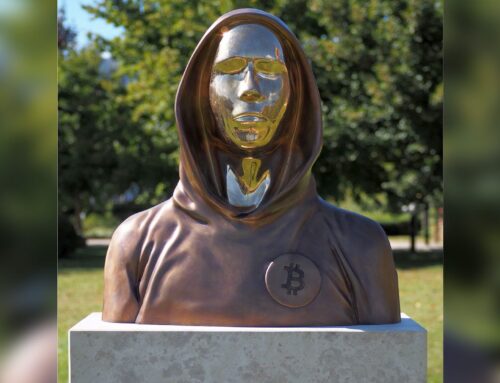Dunwoody woman loses $200,000 in Bitcoin/gold bar scam, police seek awareness
April 17, 2025

The Dunwoody City Council at its April 14 meeting asked its assistant police chief for guidance about raising awareness about financial scams after hearing about a Dunwoody woman who lost more than $200,000 in a bitcoin/gold bar fraudulent scheme.
In his monthly manager’s report, Eric Linton discussed the incident that occurred in late 2024, but was not reported to the police until March 20, 2025.
An incident report obtained by Rough Draft Atlanta detailed the events leading up to the scam. The 58-year-old victim, who had recently sold her home, said she received a pop-up message on her computer from Microsoft on Nov. 27, 2024 stating that her device had been compromised and that she should call the support center at a specific number.
“She called the number and spoke to a David Walters, who said he was with Microsoft and that her computer and her banking account had been compromised,” the report said. “He showed her a screen that appeared to be a legitimate banking screen that showed that $90,000 had been removed from her account. He convinced her that she needed to secure the remaining funds before they were stolen.”
The victim was convinced to go to a branch other than the location where she usually banked, and to withdraw $25,000 in cash, which she did while on the phone with the man who purported to be Walters.
She was then instructed to take the money to a location on Ashford Dunwoody Road near Perimeter Mall and to convert the cash into bitcoins.
Several days later, the victim was told that the remaining funds in her account, $176,580, also needed to be secured. On December 2, 2024, she returned to the same bank and requested a wire transfer for the full amount to Paarasmani Inc., a precious metal dealer, to purchase gold bars.
“Fifth Third processed the wire transfer, despite the fact that a form that [the victim] and the branch manager signed asking several questions that should have raised alarms with the bank that this was not a legitimate transaction,” the narrative said.
Ms. Edwards then proceeded to Paarasmani, which is located in Norcross, and picked up the gold bars she had purchased.
“She was then instructed to wait for an FBI agent to come to her home. A young man who appeared to be in his 20s, dark hair, medium dark skin, who appeared to be of Indian descent picked up the gold bars on December 3, 2024,” the report continued. “After giving him the bars, she requested identification, and he stated that he was not with the FBI and drove away before she could do anything else.”
It’s unclear from the report regarding how and when the transfer of the bitcoins the victim purchased had occurred.
According to Dunwoody Police Sgt. Michael Cheek, the department’s public information officer, fraud incidents happen frequently, but the method usually involve other forms of currency.
“There have been many fraud cases like this where victims were convinced to withdraw money from their accounts and convert them to Apple gift cards or send hard-copy bank checks to addresses provided by scammers,” he said. “This is the first time I’ve heard of cash being converted to bitcoin. “
At the April 14 meeting, Dunwoody Council Member Rob Price asked if the police department or the city could produce literature warning of fraudulent scams such as the one under discussion.
“This is a quality-of-life level of loss,” Price said.
Assistant Police Chief Oliver Fladrich said the police are seeing scams like this “where there is a little bit of give and take.”
“There is a small investment that pays off, then another one, and then another one, and then something like this happens,” Fladrich said. “The question is how do we reach that segment of people?”
Cheek said fraudsters often resort to “scare tactics” while soliciting money from their victims.
“Scare tactics have also been used like calling and stating they were going to jail for back taxes or a failure-to-appear warrant if the victim didn’t pay a set sum of money over the phone,” Cheek said.
The report did not indicate whether or not the victim had received any threats in the course of the transactions.
The Federal Trade Commission released a statement in 2022 warning of cryptocurrency fraud schemes.
“Scammers impersonate well-known companies,” the statement said. “These come in waves, and scammers might say they’re from Amazon, Microsoft, FedEx, your bank, or many others. They’ll text, call, email, or send messages on social media — or maybe put a pop-up alert on your computer. They might say there’s fraud on your account, or your money is at risk — and to fix it, you need to buy crypto and send it to them.”
Search
RECENT PRESS RELEASES
Related Post



